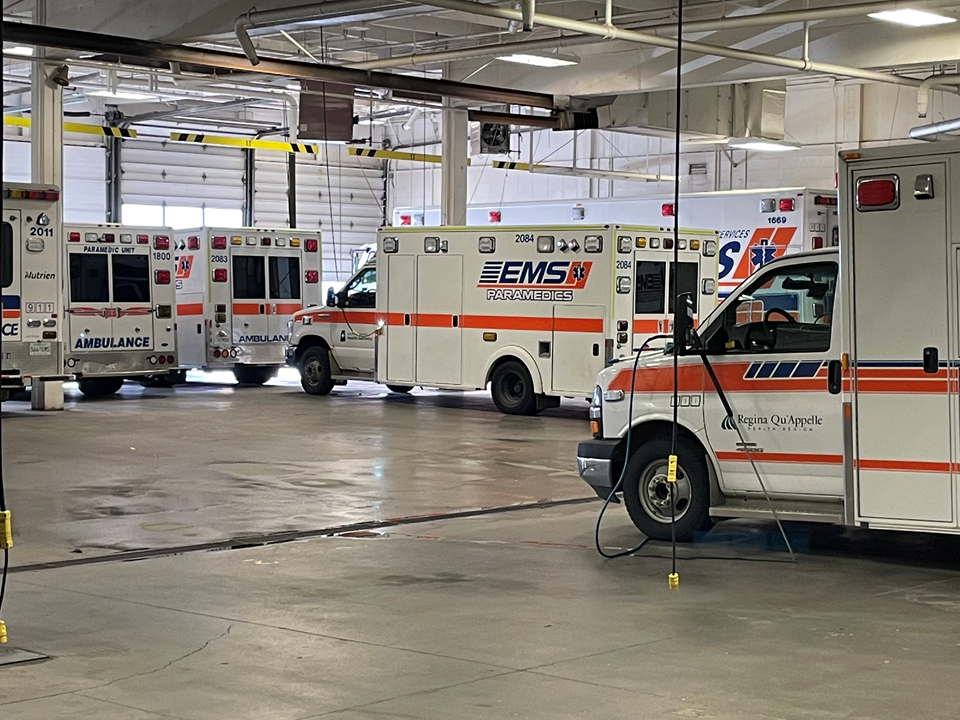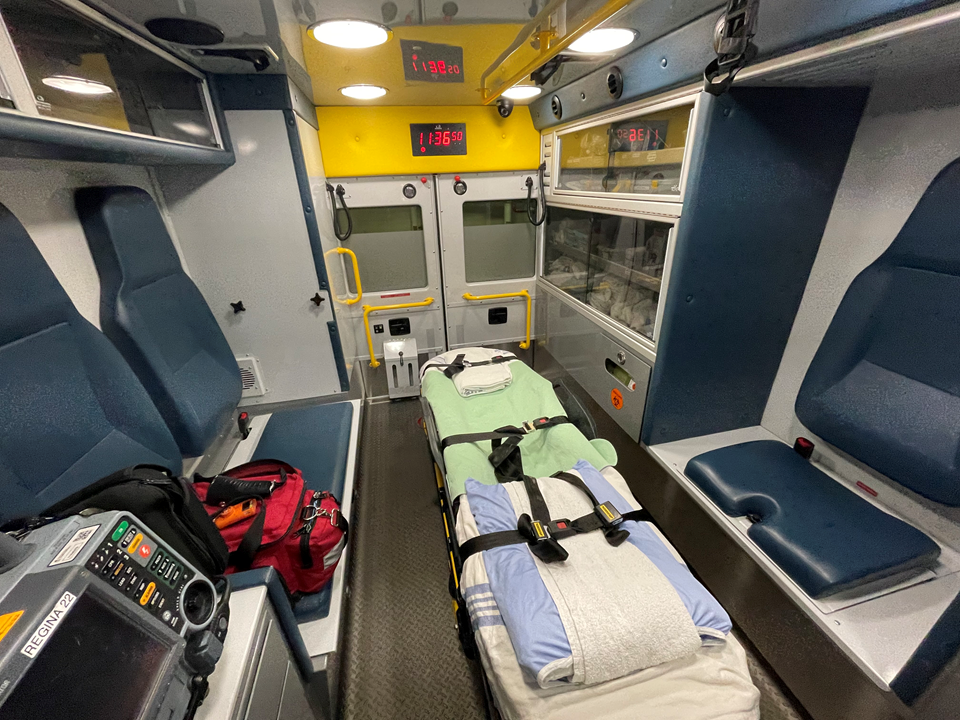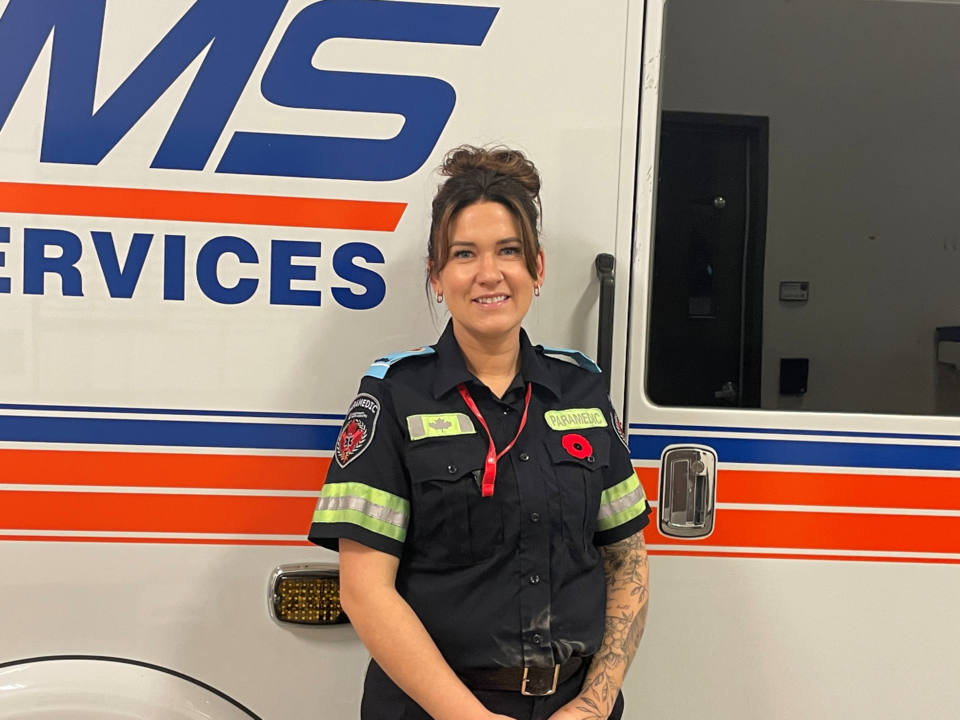REGINA - Paramedics rush to the call of those most in need, providing care, support and transportation to medical centres.
One of those paramedics is Jenna Davis, who broke down what preparing for the day is like.
“We come in the morning. It's usually nice and early. We get our trucks ready, but as soon as we put in our radio and log on to our MBT in our units, we're logged on, and we're ready to go so our dispatch can see that we're ready, And we're ready for a call from right from the start of our 12-hour shift.”
Davis said the number of calls they receive daily can vary between 3 and 11 for a unit.

Davis became a paramedic to help the vulnerable and sick. While the job can feel rewarding, it does come with its challenges.
Paramedics question what they could have done better or if they could have done something differently during a call. There can be a feeling of guilt at times after a call, said Davis.
She added paramedics need to know when to put their safety first before a patient, no matter what is happening, as they are taught to do. Davis recalled a time she received a call to help out a person. Davis felt she needed to step away from the person rather than approach them. She was thankful to do so because that patient was unstable.
Davis also alluded to the rise in violent cases paramedics are responding to. These challenges can impact a paramedic's personal life, which Davis said they try to avoid, but it’s not always possible.
That’s why there’s an organization called Paramedics with Heart, which focuses on enhancing the quality of life for those in the field.
Davis, the president of Paramedics with Heart, talked about their goals.
"We're trying to change the culture within EMS. We're trying to change it as we are here to help you, and your mental health does matter, and if you want, we're here to support you."
Paramedics with Heart remembers every year a long-time paramedic, Robbie Curtis, who died from a battle with PTSD.
Davis said sometimes a job or incident can slip through the cracks and cause a first responder to go through PTSD.
The organization is trying to change the narrative of paramedics having to be tough for their job. Davis wants paramedics to be open and talk about their calls.
Paramedics with Heart and the Robbie Curtis family have put together a scholarship for an individual studying to become a paramedic.
The individuals have to be enrolled in Sask. Polytechnic and write an essay on a medical topic. The winner is decided based on who shares the same commitment to the field as Curtis did. The scholarship awards the winner $2,000 towards their education costs.
While Paramedics with Heart focuses on current paramedics, they also educate people regarding the job. Davis said people can see paramedics as "ambulance drivers." So, they showcase what paramedics can do to change people's minds about them and get them interested in working in the field.
For those interested in the field, Davis recommended doing a ride-along with the EMS and seeing what it is like. She added not everything is going to be a life-threatening emergency, but typically, paramedics deal with sick people.

As for Davis, she is going to continue working with paramedics and organizations to ensure the first responders get the support they need.




